The once-mighty empires of the past may have long since disintegrated, but they have left a considerable legacy that still impacts society today, including everything from politics and economics to culture and religion. Here are eight history books that shed a revealing light on some of the most dominant global superpowers from the past and how they continue to influence the modern world today.

Pax Romana
Adrian Goldsworthy’s critically acclaimed Pax Romana deals with the history of the early Roman empire, starting in 27 BCE, when Augustus became the first Emperor, and ending in 180 CE with the death of the Emperor Marcus Aurelius. The term Pax Romana (Latin for “Roman peace”) became popular with Rome’s early emperors as a way of promoting the concept that they had brought peace and stability to the Roman Empire, and is now frequently used to refer to the period of Roman history which is covered in this book.
In this “powerful reassessment of Roman imperialism” (Wall Street Journal), Goldsworthy reveals how the once relatively minor city-state of Rome managed to conquer so much of the Western world and then control, with such impressive efficiency, the vast empire it had created. He is not slow to address the issue of the brutality with which the Romans dealt with any opposition to their rule. However, he also makes a persuasive argument for the important, and often overlooked, role played by Rome’s administrators in managing to sustain such a large empire over such an extended period of time.
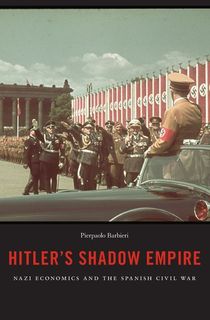
Hitler's Shadow Empire
In the meticulously researched Hitler’s Shadow Empire, Pierpaolo Barbieri sheds a revealing new light on the Nazi involvement in the Spanish Civil War. Arguing that the decision to back General Franco was driven just as much by economic ambition as by fascist ideology, Barbieri focuses on German trade in the region and how this formed part of an ambitious plan for economic dominance in Europe. He also examines the key role played by Hjalmer Schacht, Hitler’s most prominent economic advisor, in fostering Third Reich strategy until his influence waned in the light of the eventual switch in focus from economic to racial domination.

A History of the Byzantine State and Society
First published in 1997, Warren Treadgold’s A History of the Byzantine State and Society covers over 12 centuries of history and is still regarded as one of the seminal works on the Byzantine Empire today. Drawing on many years of detailed research, this comprehensive account begins in 285 CE when Byzantium split from the Western Roman Empire and ends with the final Byzantine defeat at the hands of the Ottoman Turks in 1461.
Treadgold gives due attention to the empire’s military campaigns but broadens the scope of his history to include a wide breadth of other subjects, including politics, culture and society, seamlessly weaving these different aspects of Byzantine history into a cohesive whole.
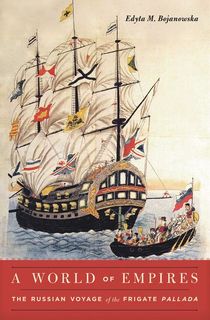
A World of Empires
Yale Professor Edyta M. Bojanowska’s A World of Empires draws on a unique eyewitness account of an epic round-the-world voyage to provide a comprehensive and fascinating insight into mid-19th century imperial expansion. In his role as secretary to the naval commander, the Russian novelist Ivan Goncharov sailed with the Imperial Russian Navy frigate, Pallada, on a two-year journey from Russia to Japan during 1852/3. The aim was to enter into trade relations with Japan, a country that was then largely unknown to the outside world.
Along the way, the author encountered striking examples of Western colonialism in action in Africa and Asia and later published his recollections of the voyage in a book that proved to be a bestseller in Russia. In this Financial Times Best History Book of the Year, Bojanowska delves deep into the issues raised by Goncharov’s account to provide a vibrant and insightful new take on the actions of the Western world’s leading empire-builders of the era, as well as Russia’s own colonial ambitions.
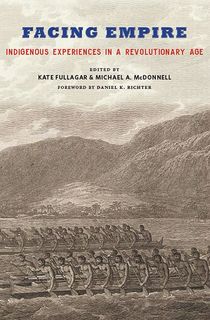
Facing Empire
Edited by Kate Fullagar and Michael A. McDonnell, this groundbreaking anthology views the story of European colonialism in the period from 1760 to 1840 from the perspective of Indigenous peoples across the world. The editors have compiled a fascinating collection of essays, written by a varied and interesting array of experts, to provide invaluable information about the experiences of Indigenous peoples during this era of global expansion. The authors have placed them at the center of the story, allowing many fresh insights into how they too came to shape the history of the modern world.
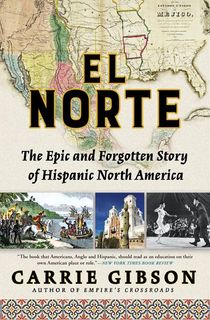
El Norte
In her epic history of Hispanic North America, Carrie Gibson highlights the role played by the Spanish-speaking world in the development of the modern United States. History Today praised her for making “a scholarly, compelling case for reassessing the Hispanic role in US history”.
So many North American histories tell their story from an Anglo perspective, beginning with the arrival of the English settlers on board The Mayflower in the early 17th century. Gibson’s sweeping version of events begins with the arrival of the Spanish in Florida over a century earlier and ends in the present day with the ongoing issues relating to the Mexican border.
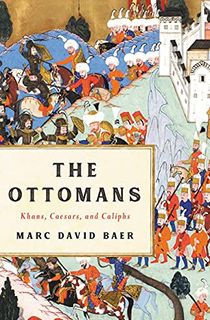
The Ottomans: Khans, Caesars, and Caliphs
Marc David Baer’s “panoramic and thought-provoking” (The Guardian) history of the Ottoman Empire covers over six centuries and charts its meteoric rise from humble beginnings in Anatolia (modern-day Turkey) to becoming one of the most powerful states in the world and then its final collapse after World War I.
The author combines an impressively detailed account of the military campaigns that led to its rapid expansion with a copious amount of background detail regarding the manner in which society, culture and religious tolerance gradually evolved in the empire. Baer uses this as evidence to support his interesting theory that until the empire’s latter stages, the Ottoman rulers were much more tolerant of other races and religions than has been previously suggested.
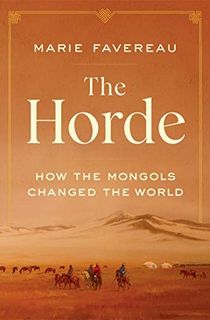
The Horde: How the Mongols Changed the World
French historian, Marie Favereau’s, comprehensive history of the Mongols provides a fascinating and welcome insight into an empire that is today relatively little known and frequently misunderstood. Published in 2022, The Horde won huge critical acclaim and was selected as a Financial Times and Spectator Book of the Year.
Established in the western part of the Mongol Empire following the death of Genghis Khan in the early 13th century, the Horde ruled over a vast territory at its peak, from the banks of the River Danube in the west to the Siberian steppes in the east. Usually portrayed as simply a ruthless fighting machine intent on conquest and destruction, Favereau highlights the Horde’s considerable other achievements. These include the empire’s success in devising an integrated economic and political structure that worked over a large territory and an understanding of the natural world that was far ahead of its time.
This post is sponsored by Open Road Media. Thank you for supporting our partners, who make it possible for The Archive to continue publishing the history stories you love.


